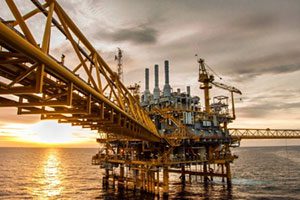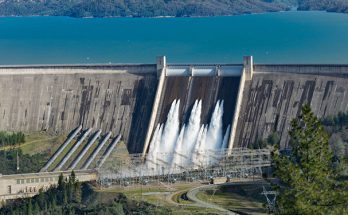 Global deepwater oil production is all set to hit new record in 2019.
Global deepwater oil production is all set to hit new record in 2019.
The production is ready to bounce by 700,000 barrels per day, bpd from 2018 to reach a record-high of 10.3 million bpd in 2019, due to new fields coming on run in Brazil and the US Gulf of Mexico, Rystad, Oslo, Norway -based energy research firm said.
Incorporation to Brazil and the United States, the other biggest deepwater producers will be Angola, Norway, and Nigeria, according to Rystad.
This is coming at a time Wood Mackenzie, United Kingdom- based energy research and consultant afformentioned that total annual deepwater capital expenditure, CAPEX, is likely to rise from about US$50 billion at present to nearly US$60 billion by 2022.
This growth will be driven by big projects in Guyana, Brazil and Mozambique. For the U.S. Gulf of Mexico, Wood Mackenzie expects “a historic year” in 2019, with Shell’s Appomattox marking the first production ever from a Jurassic reservoir in the Gulf of Mexico.
Drilling in the area is also set to post the first rise in four years and new projects are expected to be permitted according to WoodMac.
Wood Mackenzie said, “Operators have driven down the cost of developing new deepwater barrels by more than 50 per cent since 2013”.
As per the consultancy’s data and examinations, the most competitive region for deepwater is the Americas, and in particular Brazil, Guyana, and the Gulf of Mexico
In those areas, more than 50 billion barrels of oil parallel, boe of pre and post-sanction deepwater developments are now beneficial below an oil price of US$60 a barrel, based on break-even costs.
The industry has started to boost investments in deepwater after the downturn, motivated by the cost cuts and realising that offshore resources would be important for meeting demand growth, WoodMac said.
Wood Mackenzie also afformentioned that the deepwater industry appears in good health, following a sustained cost reduction through the downturn.
The key steps deepwater operators have taken in order to gain lower costs, and also gain better outcomes, include: downsizing projects; a greater focus on subsea tiebacks and Brownfield developments over Greenfield; reduced project lead times; reduced well counts; more phasing of larger developments; faster well completions; better project implementation; lower rig/service sector costs.
Research director, Angus Rodger, said, “One of the most important and main drivers in cost reducing in deepwater projects is lesser rig costs, which is a repeated factor.”



